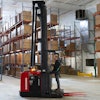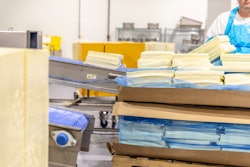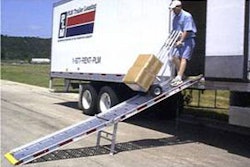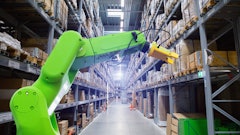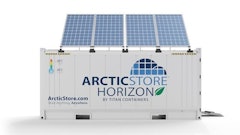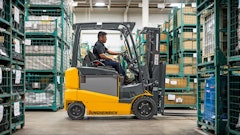You were recently honored with a public service award from the American Society of Landscape Architects. You are the president/CEO of a major warehousing company, but yet your "passion" is in landscape architecture. How did you make the jump from one to the other?
Murphy: Murphy Warehouse Co. is a family firm started in 1904. My siblings and I were raised with the knowledge that we were welcome to join the family business, but that it was not something that was expected or required.
My interest in landscape architecture began when I was in the seventh grade and my uncle, who was an architect, took me to the University of Minnesota to learn more about the field. Fast-forward to 1983, when I had accomplished more than I expected in the landscape architecture business and felt a career shift would be healthy and positive. I knew I needed basic management skills to join the family business, so I entered an MBA program.
How have you been able to incorporate your skills in landscape architecture into Murphy Warehouse Co.?
Murphy: Landscape architects and architects are trained problem solvers. The essence of their work is idea generation for problem solving. The design process is holistic and integrative in nature, and thus very useful within the business environment.
In business, an effective leader must be able to focus on both broad strategies and smaller tactical details. This is similar to a landscape architect who constantly moves between broad master plans to smaller design details.
As president of Murphy, the ability to be open-minded and creative is a crucial skill. I believe it is important to never short-change an idea while developing a solution to a problem. It's amazing how hard this can be for many folks, but exhilarating when they experience true, open brainstorming. I tend to be more visual in my thinking. I diagram or draw out ideas that often force other thoughts from my team.
I also have a strong sense of design that manifests itself in our advertising, Web design, corporate identity, etc. As you would expect, I also am directly involved in the design of our new distribution centers.
The company is a fourth-generation family business. What are the unique challenges that go with running that kind of an operation?
Murphy: As the fourth generation to lead this company, my responsibility is not to blow it! We run the Murphy family businesses as professional businesses. While our internal financial controls respect the family's strategic interests, our goal is to pursue excellence in logistics services for our customers.
After 102 years in business, we recently redefined our mission, vision and core values to carry us into the next 100 years. We recently enacted a formal policy that any family member interested in pursuing a management role in the Murphy organization must work elsewhere for at least three years before joining the company. Preferably, this experience would not be in logistics. The intent of this policy is to allow family members to learn what it is like to work for an organization where your name isn't on the building.
During this time away from Murphy, we expect family members to develop alternative business practices: what it's like to work for a boss who isn't a parent; learn the good, the bad and the ugly from other bosses and associates so that they know what not to bring back to the family business.
The key is to find family leaders who can head the organization for the next 40 years. The challenge of finding a fifth-generation leader is determining their leadership styles.
We've been in the community for more than 100 years, and generations of local families have worked with the Murphys to raise their families and pursue their dreams. I believe this history carries with it a responsibility to give back to the community that allowed us to grow and prosper. Nurturing a culture of integrity, stewardship and mutual respect is important to our family, employees and community, but also our retirees and their families.
How does that "family" atmosphere translate into the way you do business, or in the services you provide?
Murphy: We treat all our employees as family members. We work hard to earn and keep their trust and respect because we want long-term friends, not job jumpers, working with us. If you regard your employees as friends and family, and treat them accordingly, it naturally leads to an employee-friendly, productive atmosphere. That is our goal, and I am proud to say it works at Murphy.
We believe that employees deserve compassion when they are in need, even when other companies would let them go. Understand that we do have high expectations of everyone, and we will act appropriately when faced with misconduct or ethical dilemmas, but we recognize that employees are human and sometimes we all need a helping hand. This just makes sense to me.
The company's efforts are largely focused in the Upper Midwest. Any plans to expand beyond that region?
Murphy: Although we are an ambitious organization, a business doesn't live to be 102 years old by living dangerously. When a business opportunity arises, we analyze the situation with some conservatism. But when we encounter a positive opportunity with a high integrity business partner that's mutually beneficial, we're willing to grow outside our traditional backyard. — Leonard Klie


